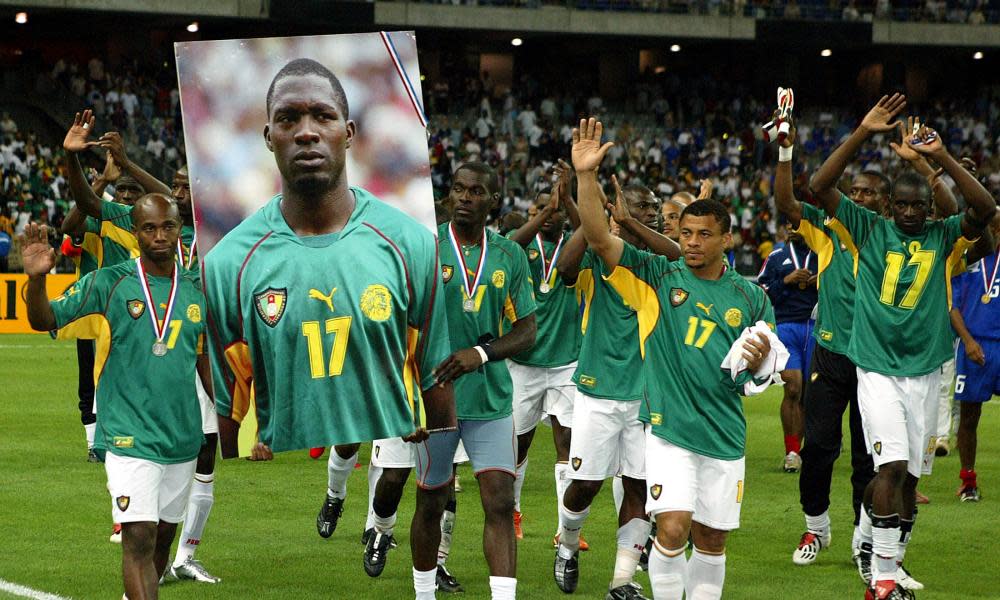More young footballers dying of heart problems than thought, FA study finds

Young footballers are dying from heart problems at a higher rate than was previously thought, according to doctors who oversee the cardiac screening programme for the Football Association.
Their evaluation of 20 years of screening young footballers at the age of 16 who are on the verge of a professional career also shows that most died about seven years after a heart check that showed no problem.
In the light of the findings, the FA has increased the number of cardiac assessments that young footballers are given from one to three, at the ages of 16, 18 and 20.
There have been a number of shocking deaths among young football stars, including that of Cameroonian international Marc-Vivien Foé, 28, who played in the Premier League. The midfielder collapsed while playing for his country against Colombia in France during the 2003 FIFA Confederations Cup. An autopsy found he had a hereditary heart condition.
In 2012, Bolton Wanderers star Fabrice Muamba, 23, had a cardiac arrest on the pitch during an FA Cup tie against Tottenham Hotspur and nearly died.
The occasional such tragedy among football players led the FA in 1997 to set up the screening programme. The tests are part of a fitness assessment that is mandatory for all academy soccer players aged 16 or 17 before they sign a professional contract. The programme now has 20 years of comprehensive data.
The review of this data was led by Sanjay Sharma, professor of inherited diseases and sports cardiology at St George’s University of London and chair of the expert cardiac committee of the Football Association. He and his team, who have published their results in the New England Journal of Medicine, found a death rate of one in 14,700 people – considerably higher than the previous estimates of one in 50,000 or one in 200,000, said Sharma.
“That was threefold greater than any study has ever reported in the past and that did surprise us,” he said. “What surprised us the most was that of the eight deaths that did occur, six had completely normal screens at the age of 16. That was worrying.
“What it told us firstly was that death rates were higher than had been anticipated and secondly that a one-off screening at the age of 16, which was what the FA were doing, is not enough and that we would probably have to do serial assessments if we are going to identify some of these guys, because they died around seven years after they had been screened.
“The death of a young athlete is highly tragic when one considers that most deaths are due to congenital electrical or structural diseases of the heart that are detectable during life.”
Between 1997 and 2016, more than 11,000 players filled in a health questionnaire, and were given a physical examination, 12-lead ECG and echocardiography. Of these players, 42 (0.38%) had cardiac diseases that could cause sudden cardiac death. Hardly any had symptoms of any sort.
Most – 30 out of the 42 – had surgery or other treatment for their heart defect and were able to go back to playing football, but the other 12 stopped playing. “Some people were disqualified from the sport, so their dreams were taken away from them. You could argue that those people may never have died if they carried on. That could be true but we don’t know that,” said Sharma.
Sharma is in favour of screening for other athletes as well. Sudden heart-related deaths in young people occur in other sports. MasterChef contestant Matt Campbell, 29, for instance, collapsed and died in this year’s London marathon. Sharma is a consultant to the board of the charity CRY (Cardiac Risk in the Young) which offers free heart screening.
Some argue that screening is a waste of time, he said. A review in the British Medical Journal in 2016 said its efficacy has not been supported by the evidence. Sharma does not agree. “If these people are going to be our role models and a source of aspiration and inspiration for our youth and expected to push themselves to their limits I think we should be doing something at least to protect them from sudden death,” he said.

 Yahoo News
Yahoo News 
